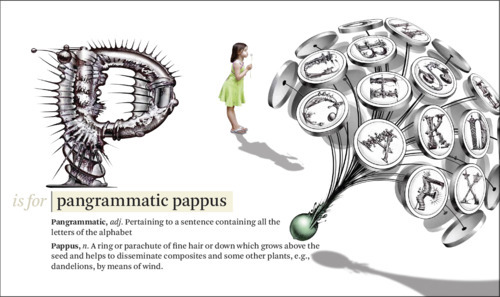I’ve written yet another LARB book review, this time on Ben Marcus’s fascinating The Flame Alphabet.

In his 1967 essay “The Death of the Author,” Roland Barthes announced the revolutionary overthrow of the writer by the reader. Building on the idea that “it is language which speaks, not the author,” Barthes argued that a ceaseless proliferation of meaning always piles around every sentence, always exceeding the intention of its particular “scriptor,” thus enthroning the reader as the ultimate arbiter of meaning. This newly empowered reader — a figure engaged in a “truly revolutionary” and “anti-theological activity” — was, Barthes thought, “that someone who holds together in a single field all the traces by which the written text is constituted.”
Forty-five years later, what may seem most revolutionary about Barthes’s essay is what it takes for granted: that there are readers at all for literary fiction, let alone that there’s a “someone” interested in doing the hard work of holding all these traces together inside her head. In an era where everyone has a novel waiting to come out, authors are legion; it’s the reader who seems, well, dead. If anything threatens to kill the author today, it’s not that the reader might interpret her work in subversive ways — if only we were so lucky! — but that the reader might not care enough to try in the first place. What to do in this situation has been the subject of what we might as well call a debate between Jonathan Franzen and Ben Marcus, waged for about a decade on the pages of The New Yorker, The New York Times, and Harper’s. It’s also the backdrop against which we must understand the successes and occasional fumbles of Marcus’s disturbing and remarkable new novel, The Flame Alphabet.
For, at first blush, The Flame Alphabet seems as if it’s perfectly pleased with the death of the reader, as if it hopes for nothing more than to murder those very few remaining who bother to buy books at all, throttling them with a suffusion of pus-covered words and sentences. The Flame Alphabet is a pointedly disgusting book that will tickle your gag reflex with its bony, sore-covered finger. Reading Marcus’s fetid prose will clog your nostrils, enflame your throat, jam your every orifice with a thick and soupy, cold and gloppy, not to mention barbed and burning, meal of unpalatable, oddly shaped sentences.
Jonathan Franzen might regard this as a problem.
And yet, if I properly understand the aims of The Flame Alphabet, my description should not count as an insult, but as deep praise. The Flame Alphabet deforms language in dazzling new ways, frequently surpassing Marcus’s previous books — The Age of Wire and String, The Father Costume, and Notable American Women — at the level of the sentence. Quite strangely, though, at the same time that Marcus expertly smothers the reader under a lovely barbed pillow, he whispers sweet compliments into his victim’s ear. That is, for all its gorgeous rankness, The Flame Alphabet is not quite as successful as it might be. In adopting the literary form of the post-apocalyptic thriller, a form emphasized by all of the novel’s packaging — from its blurbs to its book trailer — it concedes too much to Franzen. Better a clean death, I say. Better the dignity of silent asphyxiation.
There’s more where that came from, here.